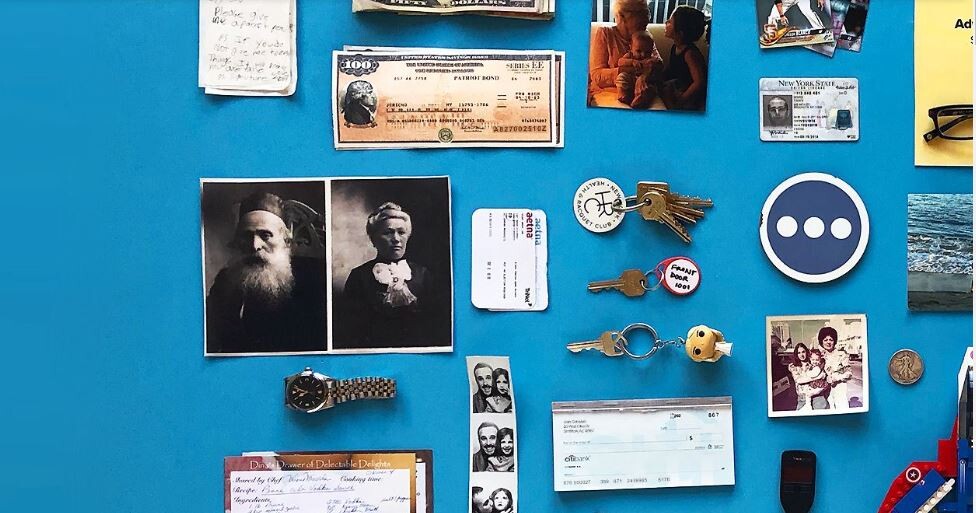Are you a list maker? Or do you use them to help you move forward and stay organized, even if you don’t really like making lists? One of the most common To-Dos on our “list” as we get older, whether it is written down or in our head, is the matter of taking action on the most procrastinated, backburner item related to planning…getting our financial house in order so things go more smoothly for loved ones in the end. Before it’s too late, we need to have all of our financial checklists complete so we don’t have to utter the dreaded words “I wish I would have…”.
On the flip side of that list item, is the perspective of our loved ones. I recently read the May issue of Kiplinger’s Retirement Report and the theme of several articles was related to losing a loved one (spouse, parent, sibling). A common thread across all of the stories shared was a family member’s retrospect feeling of “I wish I would have…” known more about the finances, asked about his/her wishes, understood where to find information, or considered the scope of his/her estate. COVID-19 has been a motivator to Americans, prompting many of us to think more seriously about the actions needed in case we get seriously ill or die, while at the same time motivating us to complete these tasks.
Planning Across Generations
The Everplans COVID-19 Readiness Sentiment Survey, which surveyed 1,000 Americans on April 27-28, 2020, found that a strong majority of people (65%) say that the Coronavirus pandemic has made them realize the importance of sharing important information with family, and that planning for the future is more important than ever (64%). Half (50%) said that COVID-19 has made them realize how unprepared they were for a serious emergency. These sentiments are especially strong among Millennials and GenX, those with children, men more so than women, and Northeasterners and Southerners (corresponding to regions with COVID hot spots).
What have you completed and have in place for times of emergency? How do you feel about sharing information with family? Compare your answers with the survey results at Everplans.
It Won’t Happen to Me
“When the unexpected happens, people look for ways to regain a sense of control — to feel more prepared. The Everplans COVID-19 Readiness Sentiment Survey demonstrates this need,” said Abby Schneiderman, co-founder and co-CEO of Everplans. Everplans is a secure digital platform that guides you through organizing, storing, and safely sharing critical information and documentation you and your loved ones may need in case of emergency, from your will to the unlock password for your phone. “These findings, and the coronavirus crisis in general, are a reminder of how important it is for all of us to be well-prepared for unexpected events, and a wake-up call for those who have not yet organized for the future. Resources like Everplans make it easier than ever for everyone to take the first steps to protect themselves, their family and their loved ones.”
The most common sad stories I hear have to do with families not having powers of attorney in place. Too often families assume that if a loved one is sick and unable to make healthcare and/or financial decisions, that someone in the family will automatically be able to step in and help with those decisions and actions. Legally, if nothing is in writing in the form of a Power of Attorney document about who that sick person authorized to act on his/her wishes, the family is often forced to go to court and go through the guardianship and/or conservator process. Estate planning attorneys recognize that families have no idea how difficult, intrusive, time-consuming and expensive those court processes can be.
A Strong Motivating Factor
COVID-19 has also motivated Americans to act and get better prepared for emergencies, and many have gravitated toward planning activities that are more doable independently – 40% have written down account logins/passwords; 36% have written down account details, and 36% have talked to their children about death. Almost everyone agrees that it is important for parents and adult children to talk about long-term life planning. This is true especially for more tangible tasks – such as sharing “important household information” and the “location of important documents.”
Taking Action Today
In my experience helping families over the last 20 years with this procrastinated area of life has been the realization that part of the reason it is so hard to take action is that we are acknowledging that there will be an end to our life…not a pleasant topic. But, our brain avoids negative feelings so we often don’t get past that uncomfortable feeling to take any action.
The good news is that we can change our attitude from negative to positive by recognizing it is truly a gift we are leaving our family by taking the time to get our financial affairs in order. After that, break that gift down to several small tasks (make a list of assets, make a list of where documents are located, update/draft estate planning documents with an estate planning attorney, etc.) and once those tasks are complete, your gift is done! Look at this like any other gift you have made, you complete it in chunks of time and often leave it out in a visible area so you can see it and work on it over time. Find fillable pdf lists to help you get started today on the resources section of our website. Moreover, don’t forget to still enjoy life along the way while you are chipping away at your best last gift to your family.
Then you won’t ever have the regret of thinking “I wish I would have…”
Marie Burns is a Certified Financial Planner, Speaker and Author of the bestselling Financial Checklist books.

